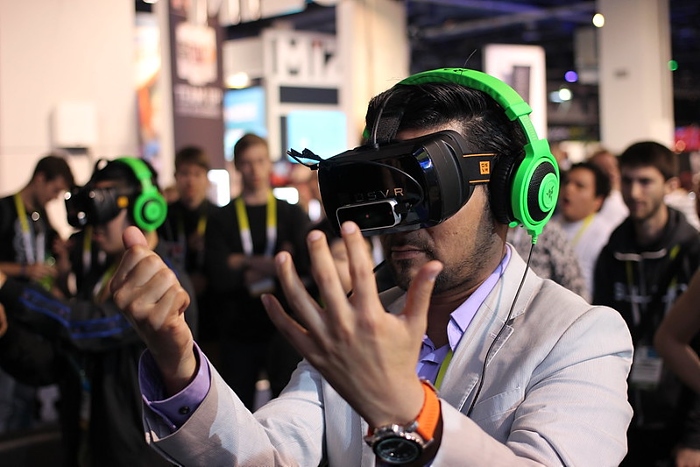
Once upon a time, bars used to be good for drinking and having a good time, and we’re not talking about back in the olden days either.
Whether they were old-fashioned pubs or micro-breweries, they were the hub of entertainment.
In many ways, a lot hasn’t changed because bars still hold this mantle.
However, they do it through different means. Yes, virtual reality technology is now in these establishments.
Talk about beer goggles! To you, it might seem as if it’s a nice gimmick that won’t get very far, yet the truth is that bars could be the future of VR gaming. Continue reading to find out why.
VR Gaming on the Rise
Virtual reality tech isn’t only available in the form of headsets from Oculus and Sony, although they are the leaders from a hardware perspective.
Understanding that people don’t just want to indulge in gaming environments within their homes, companies have ventured out into the real world to give people a sample of a fake one.
The VR Concept, for example, is a business that brings VR infrastructure to traditional pubs, mainly in London.
After a couple of years of launching, the company now makes up half of all VR arcades in the English capital, which is very impressive.
For punters, this means they get access to a range of titles in their favourite haunts, from console to casino releases.
Of course, they can also leverage the perks that come with them, such as online welcome offers and promotions.
A casino bonus in 2021 is already like to centre around VR software since the likes of video slots increase their demand daily, with Starburst classified as NetEnt’s most popular offering.
But some promotions’ pages inform people of the games which will accept their bonuses.
This means a new title could take over. Regardless, this doesn’t change the trajectory of the market.
After all, now gamers can access bonuses and games where they couldn’t before, the demand for VR releases will skyrocket further.
Spectator VR
The growth of eSports has clearly impacted virtual reality gaming. For instance, the industry had 458 million viewers in 2019, and the number is expected to rise year-on-year until the start of the next decade.
Of course, there’s the impact virtual reality tech has had on transforming the traditional sports industry.
Today, broadcasting networks are promising virtual reality coverage, just as the BBC did at the 2016 Rio Olympics.
Several US sports, such as basketball and American football, have already seen VR broadcasting start-ups cover fixtures.
This is essential for bars because they are the places people go to watch these events.
Whether they are real or virtual, people like to be in a vibrant atmosphere where accessibility isn’t an issue, rather than at home stuck in their bedrooms.
The more VR pops up in the popular culture, the more intense the phenomenon becomes an occurrence best highlighted by the role of ‘Ready Player One’ on the growth of VR user bases since its release in 2018.
What Does the Future Hold?
It’s impossible to tell. However, all the signs point in the direction of bars and VR technology sharing a very bright and lucrative partnership.
With the VR gaming sector on the rise, it will only intensify the relationship between the two.


















Recent Comments